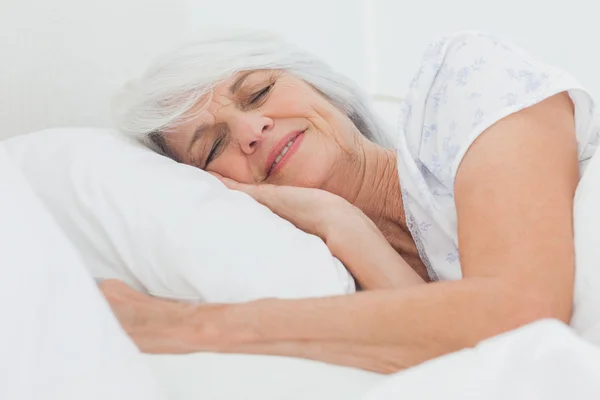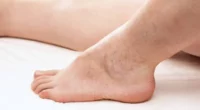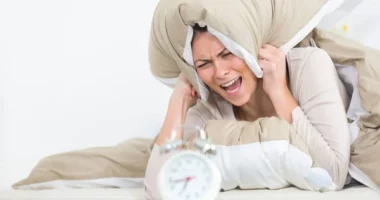Getting enough rest is essential for physical health, mental clarity, and emotional resilience—but how much is enough? It turns out the answer varies significantly depending on your age. According to sleep medicine specialists and decades of research, your sleep needs evolve as you grow. Babies require far more rest than adults, while older individuals often face unique sleep disruptions despite needing similar durations. In this comprehensive guide, we’ll break down the ideal sleep hours for each life stage, highlight what keeps us from resting well, and share expert-backed tips to help you achieve quality sleep—consistently.

How Much Sleep Do You Need by Age?
The amount of sleep your body requires is closely tied to your developmental stage. While a newborn may spend more time asleep than awake, a healthy adult typically requires seven to nine hours per night. Here’s a breakdown based on recommendations from the American Academy of Sleep Medicine and the CDC:
Recommended Daily Sleep Duration by Age Group:
- Newborns (0–3 months): 14–17 hours
- Infants (4–11 months): 12–15 hours
- Toddlers (1–2 years): 11–14 hours
- Preschoolers (3–5 years): 10–13 hours
- School-age children (6–13 years): 9–11 hours
- Teenagers (14–17 years): 8–10 hours
- Young adults (18–25 years): 7–9 hours
- Adults (26–64 years): 7–9 hours
- Older adults (65+ years): 7–8 hours
These numbers reflect total sleep over a 24-hour period, including naps for younger children. It’s important to note that some individuals may function optimally with slightly more or less than the average, but chronically sleeping outside these ranges can affect overall health.
Take, for example, a 16-year-old high school student staying up until 1 a.m. to study and waking up at 6 a.m. for school. While it may seem like a necessary routine, consistently getting less than eight hours of sleep can impair concentration, decision-making, and emotional regulation. Sleep, in this case, isn’t a luxury—it’s a biological requirement.
How Important Is Sleep Quality?
Quantity matters, but quality determines whether your body and brain can effectively recover during the night. Sleep is composed of different stages, including light sleep, deep sleep, and REM (rapid eye movement) sleep. Each of these stages plays a critical role in maintaining cognitive function, repairing tissue, and balancing hormones.
When sleep is fragmented—perhaps due to noise, light exposure, or sleep disorders like sleep apnea—the body is unable to cycle through these stages properly. As a result, even eight hours of interrupted sleep may leave someone feeling groggy, irritable, or unfocused. According to the Sleep Foundation, nearly 35% of adults in the U.S. report poor sleep quality, even when they meet the recommended sleep duration.
One mother of three shared that although she gets “a full seven hours,” she’s often woken multiple times a night by her toddler. “It’s not just about how long I sleep—it’s how restful it is. I wake up feeling more exhausted than when I went to bed,” she explained. That sentiment echoes what sleep scientists have long emphasized: uninterrupted, high-quality rest is essential.
What Prevents Us From Getting Good Sleep?
Sleep deprivation isn’t always the result of poor time management. Often, environmental, behavioral, and physiological factors are at play. Here are several common obstacles:
- Stress and Anxiety: Racing thoughts and unresolved worries can prolong sleep onset and fragment sleep cycles.
- Irregular Sleep Schedules: Going to bed at different times each night disrupts the body’s circadian rhythm.
- Blue Light Exposure: Phones, TVs, and tablets emit light that suppresses melatonin—the hormone that signals bedtime.
- Caffeine and Alcohol: While caffeine delays sleepiness, alcohol disrupts REM sleep later in the night.
- Sleep Disorders: Conditions like insomnia, sleep apnea, and restless leg syndrome are significant but often undiagnosed contributors.
Environmental cues also play a role. A noisy neighborhood, bright lights, or even an overheated bedroom can interfere with falling and staying asleep. Unfortunately, these interruptions are often overlooked or normalized.
What Are the Side Effects of Not Getting Enough Sleep?
Sleep deprivation doesn’t just make you tired—it can chip away at every facet of your health. Chronic sleep loss has been linked to a higher risk of obesity, heart disease, type 2 diabetes, and even Alzheimer’s disease. Mentally, it can cause brain fog, reduced creativity, and emotional instability.
In adolescents, insufficient sleep is strongly correlated with higher rates of depression and risky behavior. In adults, it can impair memory retention, weaken immunity, and reduce job performance. According to the CDC, individuals who get fewer than seven hours of sleep are nearly 30% more likely to be obese than those who sleep more.
A middle-aged executive who trimmed her sleep to five hours a night for years in order to get more done eventually experienced severe burnout. “I thought I was optimizing my productivity, but I ended up in the hospital with extreme fatigue and high blood pressure,” she shared. This story isn’t rare. Lack of sleep is a silent saboteur—and many people don’t realize the damage until it’s already done.
5 Expert-Approved Tips for Improving Sleep
Improving sleep isn’t always about adding hours—it’s often about creating habits that allow your brain to wind down and your body to rest efficiently. Here are five expert-backed strategies that actually work:
- Stick to a Consistent Schedule: Go to bed and wake up at the same time daily—even on weekends—to regulate your body’s clock.
- Create a Wind-Down Routine: Spend 30–60 minutes before bed doing calming activities like reading, meditating, or taking a warm shower.
- Limit Screen Time Before Bed: Avoid electronics at least one hour before sleeping. Blue light can trick your brain into staying alert.
- Keep Your Bedroom Sleep-Friendly: Make it dark, quiet, and cool. Use blackout curtains, white noise machines, and breathable bedding.
- Avoid Heavy Meals and Stimulants Late at Night: Stop consuming caffeine by mid-afternoon and avoid alcohol close to bedtime.
Sleep expert Dr. Natalie Azar recommends tracking sleep patterns with a journal or app to identify triggers and improvements over time. “Most people underestimate how much lifestyle choices influence sleep. A few simple tweaks can lead to profound changes,” she notes.
Final Thoughts
Sleep isn’t optional—it’s essential. It’s the foundation on which your physical vitality, emotional stability, and cognitive performance are built. From infancy to old age, understanding and honoring your sleep needs is one of the most impactful ways to enhance well-being. While perfect sleep might not happen every night, consistent habits and an informed approach can make a lasting difference.
Whether you’re a parent managing bedtime battles, a student pulling all-nighters, or a retiree struggling with restlessness, there’s always room to improve your sleep hygiene. And when you sleep better, everything—from your memory to your mood—benefits.
Also Read | Burning Mouth Syndrome: Instant Relief Tips That Really Work










